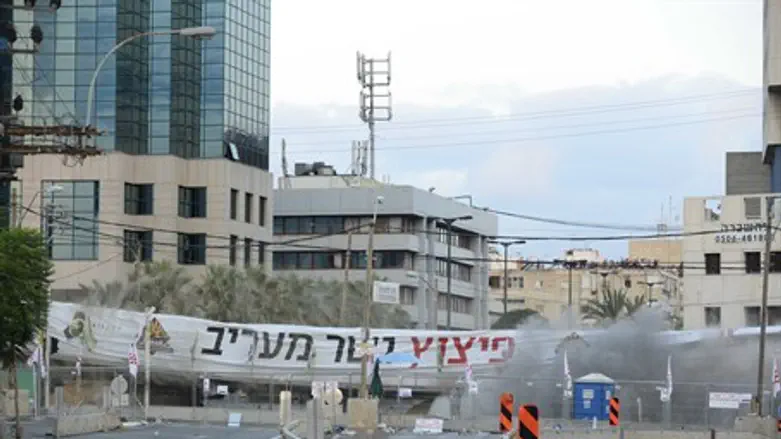
From Jerusalem, where protesters last week demanded that the new Yes Planet theater be required to close on Shabbat, the “Sabbath Wars” extended to Tel Aviv this week, as workers cleaned up the debris of the shattered Ma'ariv Bridge, which was blown up to make way for a station of the city's subway system.
It's an “unfortunate way to inaugurate the Tel Aviv railway,” said the city's Chief Rabbi, Yisrael Meir Lau. A veteran of many struggles to encourage Sabbath observance – and discourage public desecration of the holy day – Rabbi Lau said that he and all residents of Tel Aviv fully realized that the construction of the subway system – the first stage will take at least six years – will be laden with traffic jams, inconveniences, and a lot of dust and noise. “But it cannot come at the cost of Shabbat,” he told Arutz Sheva Sunday.
Rabbi Lau said he had heard in advance that the cleanup could extend into Shabbat, and he contacted businessman Lev Leviev – himself and observant Jew and the head of the company that had received the cleanup contract – to appeal to him to intervene. Leviev promised that work would not take place on the holy day, a promise that Rabbi Lau said was reiterated by numerous public officials he had spoken to.
However, all the parties making the promises seemed to backtrack. As Friday progressed, Rabbi Lau was told that only non-Jewish workers would continue with the cleanup after Shabbat started. This he protested as well, as non-Jews are generally not allowed to perform labor for Jews on the Sabbath apart for in a few extenuating circumstances. In the end, Economics Minister Aryeh Deri said that he had “arranged” matters to prevent Sabbath desecration – but on Saturday night, Rabbi Lau made the bitter discovery that work had indeed continued throughout Shabbat.
“It's heartbreaking,” said the rabbi. “What's important now is to look ahead to the coming six and a half years and find ways to prevent this from happening again.”